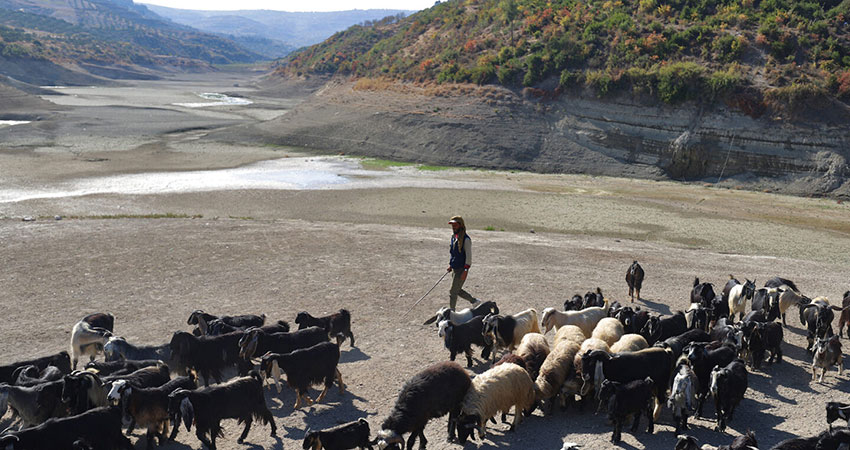Syrians for Truth and Justice (STJ) contributed to this report by providing first-hand statements collected by our field researchers from locals in the target area.
Over twelve years of war in Syria have seriously degraded water sources, affecting people, livelihoods and ecosystems. One under-reported affected water resource is the Orontes—the second-largest river—and its basin in the west of the country. To provide insights into the complexity of this lifeline for millions of people, PAX’s new report “Thirst for Peace: War and Water Security Challenges along the Orontes River in Syria” examines how the conflict has degraded the availability and quality of water resources over the past decade and has compounded the precarious effects of climate change. This study provides a broad analysis using open-source data and remote sensing on various water issues and recommendations for the international community to address the challenges around water insecurity in the Orontes Basin to improve water access, water management, and sanitation services for affected communities.
PAX is launching this new report on the International Day for Preventing the Exploitation of the Environment in War and Armed Conflict as an important reminder of multi-faceted impacts armed conflicts have on the environment. Water resources and infrastructure are particularly vulnerable to those impacts, with wide-spread cases of pollution or depletion of water resources as a result of fighting or failing environmental governance, destruction of critical water infrastructure or using water as weapon by warring parties. Syria was already facing environmental challenges, including water insecurity before the popular uprising in 2011, yet the subsequent war has had major consequences for the country’s water resources and their management.
While issues around water insecurity in eastern Syria have been well documented, the many water stressors impacting lives, livelihoods, and ecosystems in western Syria are less known due to limited access for international media, humanitarian actors, and civil society organisations in both the regime- and rebel-held parts of the region.
The drivers and impacts of water insecurity in the Orontes River Basin
Building on open-source research, including remote sensing, and testimonies from community members on the ground, this report gathered evidence on a broad range of conflict-related issues that each contributed to water insecurity in the region, exacerbated by the impacts of climate change. These range from water contamination by industrial sites in Homs and Aleppo, inadequate water infrastructure in Idlib, illegal well drilling and the impact of displaced communities on water use. Deteriorating water quality, quantity, and accessibility have led to ecosystem degradation in the area, agricultural decline, and public health problems – both in local communities and among internally displaced persons (IDPs).
Marie Schellens, geospatial analyst at PAX: “Much of the basin’s water infrastructure, including for wastewater treatment, is non-functional due to conflict-inflicted damages, the looting of pumps, and a lack of personnel and maintenance. Coupled with the lack of regulation for discharge of untreated industrial and household waste, this contributes to the dangerously low quality of the Orontes waters.”
Insights for informing better international response measures
A nuanced understanding of the nature and consequences of water insecurity in this region is crucial for developing better responses to assist the affected communities. Over the past decade, PAX has been leading research and advocacy around the environmental dimension of wars and how to minimize and mitigate these impacts on lives, livelihoods and future generations in conflict-affected areas. This new report thereby aims to provide insights and concrete recommendations to governments, development agencies, humanitarian organisations, and peacebuilding actors working in Syria to help inform humanitarian policies in response to critical water insecurity issues in the region.
PAX also calls upon all regional actors to treat water insecurity as a priority and to prevent further damage to water resources and infrastructure. As a member of the Global Alliance to Spare Water from Armed Conflicts, PAX underlines the importance of enhancing protection of freshwater and water-related installations in conflict settings. Lastly, the report’s findings highlight the need for the international community to reinvigorate negotiations towards a political solution in Syria, which is crucial to prevent the further degradation of water resources and restore environmental governance in the region.
To read the full report click the link

